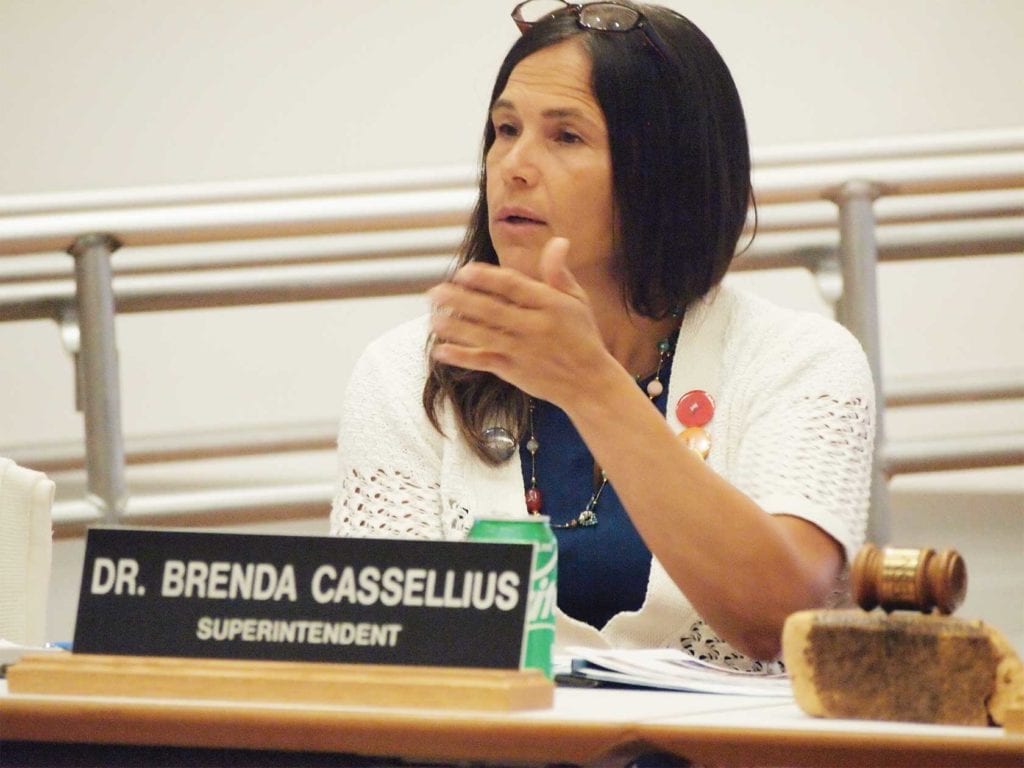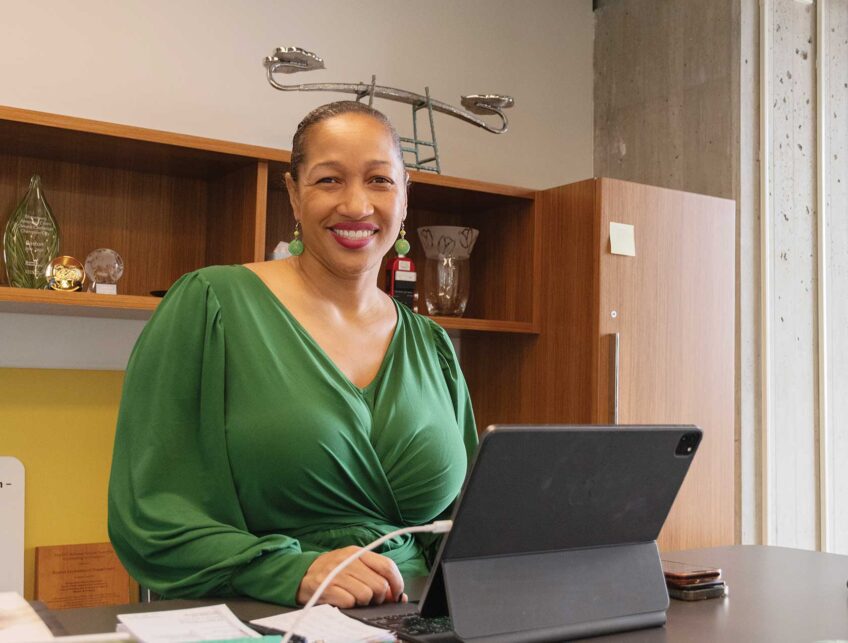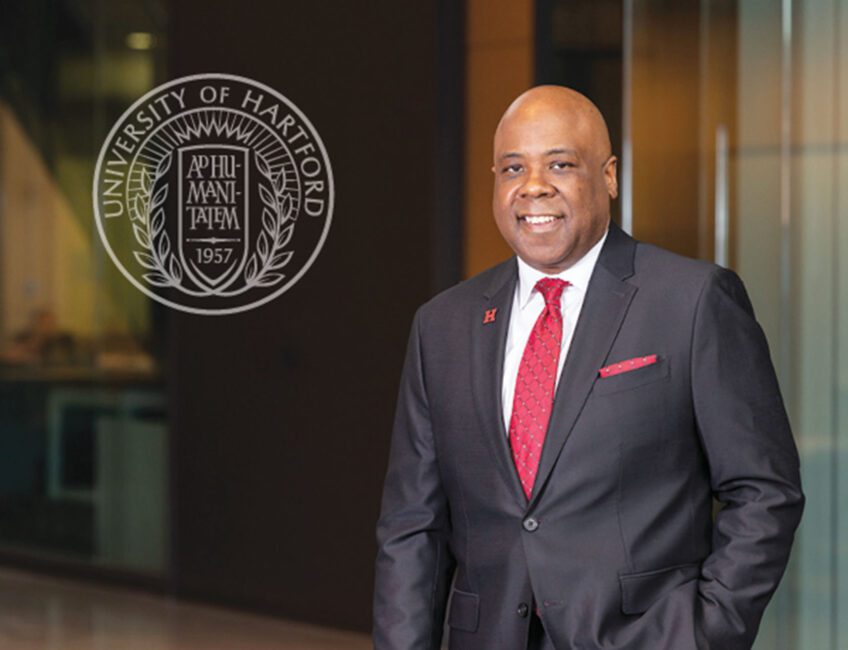
Boston Public Schools Superintendent Brenda Cassellius has released a $1.26 billion fiscal year 2021 budget that would increase school spending by $80 million, a 6.3 percent increase in the budget, which will kick off a five-year strategic plan for improvements in the system.
The budget includes $36 million in new investments in school budgets, which will fund new instructional materials and funding for family liaisons, social workers and nurses. This funding will also cover professional development for teachers and provide them assistance in developing new curricula.
“This money goes directly to students, not to salaries,” Cassellius said, speaking during the School Committee meeting on Wednesday, Feb. 5.
An additional $44 million in the budget will cover a 3.5 percent increase in salary and benefits costs for existing BPS personnel.
Although state funding for Boston schools has increased under the Legislature’s Student Opportunity Act, that funding will go to cover the district’s state-mandated obligation to cover growing charter school tuition costs. Cassellius said the increased state funding would reduce the gap between state funding and charter school tuition, but not eliminate it.
“We would have had a $17 million cut, but with the Governor’s proposal we’re having a $10 million cut,” she said. “We believe that this kind of rights the ship a little.”
The $80 million increase represents the largest increase by percentage for BPS schools since 1999.
“What the city has done is create a multi-year commitment to funding that is rooted in the health of the city and their finances and a commitment to fund us regardless of declining enrollment,” said BPS Budget Director Nathan Kuder.
Kuder said the increased funding represents a long-term commitment to hire and retain positions such as social workers and family liaisons.
“This is a fundamental change in what our families can expect in all of their schools,” he said.
Of the $36 million in new school budget funding, $19 million will go to 33 schools labeled “transformation schools” by the state’s Department of Elementary and Secondary Education because of their relatively low graduation rates and low scores on standardized tests.
“This year you’re seeing most of the investments happening in our highest-need elementary schools,” Cassellius said.
The funding will expand to other schools in the next two years.
“We’re getting $100 million over three years, which means we’ll be able to do a lot more with this,” Kuder said.
Other funding will include investments to help high schools adopt the state’s MassCore standards, which set curriculum requirements for high school graduation, funding for 25 new school custodians, and investments in academic supports including textbooks, computers and instructional materials.
Winners and losers
While 33 BPS schools are receiving funding for additional student supports, many schools still stand to lose under the district’s student-weighted funding formula, which funds schools on a strict per-pupil basis. Under the system, schools that see drops in enrollment lose per-pupil funding, often forcing them to cut positions such as teachers or librarians.
Students, parents and teachers at the School Committee meeting last week advocated for funding for a range of issues, from toilet paper in school bathrooms to the retention of staff in schools that stand to lose funding.
“In our bathroom, we run out of toilet paper and the bathroom is not very clean. We ask that you help us,” said fifth-grade Conley School student Donal Davis, choking back tears.
Excel Academy teacher Jennifer Garay noted that her school is facing a $700,000 budget deficit that will lead to the loss of eight staff positions.
“Students deserve more than the minimum staffing positions BPS claims we need based on an outdated and deeply-flawed budgeting algorithm,” she said. “
Mather School librarian Maura O’Toole said her position is one of four being cut from the Dorchester school. She noted that exam schools and well-resourced elementary schools in the city are not facing similar budget cuts.
“Elementary schools like the Mather that serve our most vulnerable students cannot prioritize $15,000 to keep my position because to do so means cutting instructional coaches and coordinators of special education,” she said. “Why can’t BPS figure out a way to maintain this critically fundamental element of education that’s offered by every other district that surrounds our schools in the Greater Boston area?”
O’Toole drew a standing ovation from the audience.
City Councilor Annissa Essaibi-George questioned the school department’s use of the weighted student funding formula, advocating for a foundational school budget that would guarantee schools the ability to retain critical staff such as counselors and librarians regardless of changes in enrollment.
“Our schools should no longer be in a position to trade away social and emotional support services, dyslexia support services, family engagement coordinators, libraries or librarians, or specialized arts and athletics programs,” she said. “These are basic necessities, just like having a full-time nurse in every school.”
Essaibi-George said she supports the Boston Education Justice Alliance (BEJA) pledge for a baseline budget in every school that would guarantee funding for arts, sports, counselors, nurses and other staff that BEJA Executive Director Ruby Reyes says are necessary for providing a quality education in every school.

BEJA Executive Director Ruby Reyes.
YouTube screen grab
“In addition to equity-based weighted student funding, we need to guarantee a baseline quality of education at every school through foundational school budgets that cover necessities,” Reyes told School Committee members during the meeting.
Reyes noted that 10 city councilors have signed on to the pledge. (Frank Baker, Kenzie Bok and Andrea Campbell have not.)
Reyes said the current system, in which schools gain or lose funding based on increases and decreases in the number of students enrolled, destabilizes school communities.
“This culture of pitting schools, families and neighborhoods against each other, does not cultivate trust,” she said. “It is a BPS culture that further divides neighborhoods and families between racial and economic lines.”






